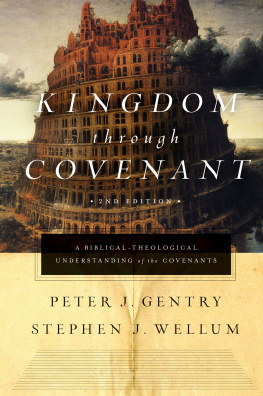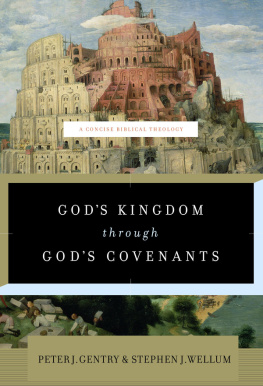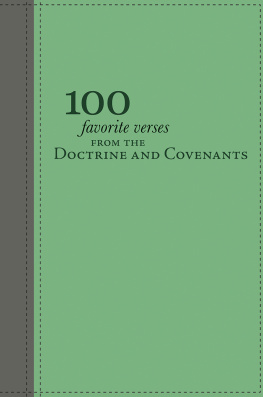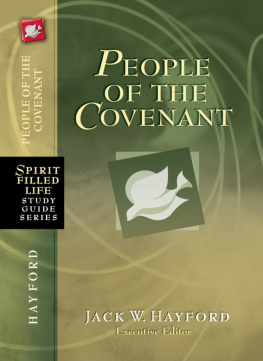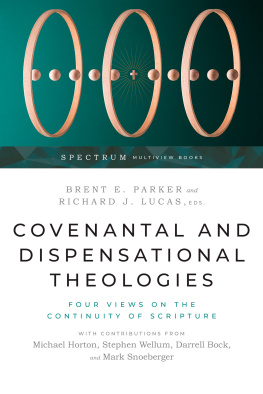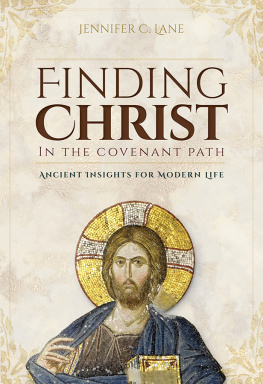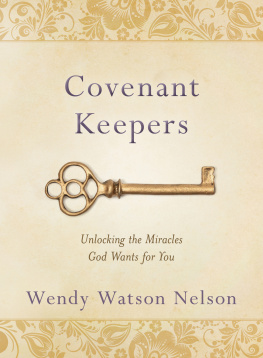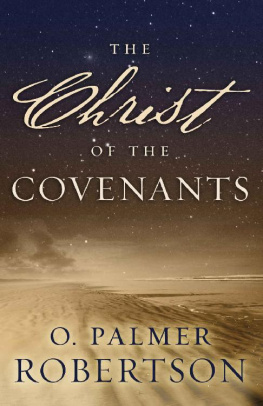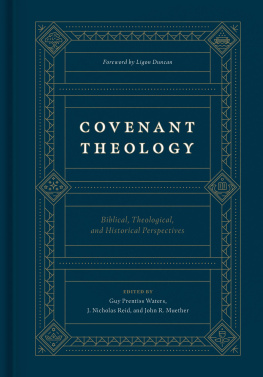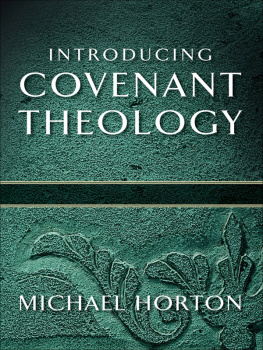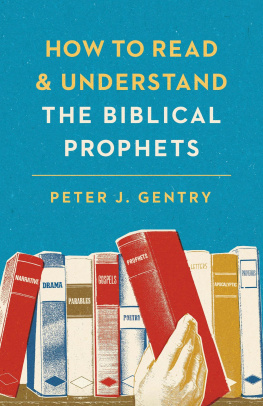Table of Contents
Landmarks
Another key point in the narrative plot structure of Scripture is the agreement or covenant that God initiated with David, king of Israel. As a convenient and short title we shall call this agreement the Davidic covenant, observing the language of the biblical text.
As we shall see, the Davidic covenant functions in the larger story in a number of significant ways. In the history of the people of Israel, it inaugurates a divinely designed model of kingship for the nation. Furthermore, it implements the kingship of Yahweh among his people at a deeper and higher level. In addition to addressing concerns and problems of the developing nation of Israel, the Davidic covenant carries forward in specific ways the intentions and purposes of God expressed in the Sinai covenant and, even further back, in the covenant with Abraham.
First, we shall look at the context and historical situation in which kingship was inaugurated. Then, we shall examine the main passages on the covenant with David and also look at how this was appropriated and understood by later texts of the Old Testament, particularly Isaiah 55. Finally, we shall briefly describe the connections and relations between the Davidic covenant and the Sinai covenant and the covenant with Abraham.
Joshua
Joshua was a leader like Moses. He led the people into the land of Canaan, the land promised to the patriarchs in the covenant with Abraham. The book of Joshua is divided into two parts: the first half describes the conquest of the land; the second half describes the division of the land among the twelve tribes of Israel according to their clans (). This result was a clear fulfillment of the Israelite covenant, but it also led Israel to a higher level of commitment, as we see when the book ends with a ceremony of covenant renewal (Josh. 24:25).
The expression employed for this ceremony is k rat b rt , to cut a covenant. Some scholars have falsely assumed from such texts that the expression k rat b rt does not always refer to covenant initiation but can be used for covenant renewal. This is an erroneous conclusion. What in fact happened is that Joshua made a covenant with the people to keep the covenant the Israelite covenant inaugurated through Moses at Sinai and Moab. So technically, from a linguistic point of view, k rat b rt refers only to covenant initiation.
Another example, precisely similar to Joshua 24, is 2 Kings 23:23:
And the king went up to the house of the Lord , and with him all the men of Judah and all the inhabitants of Jerusalem and the priests and the prophets, all the people, both small and great. And he read in their hearing all the words of the Book of the Covenant that had been found in the house of the Lord . And the king stood by the pillar and made a covenant before the Lord , to walk after the Lord and to keep his commandments and his testimonies and his statutes with all his heart and all his soul, to perform the words of this covenant that were written in this book. And all the people joined in the covenant. (ESV)
Here King Josiah makes a covenant ( k rat b rt ) to keep a covenant, that is, to perform the words of this covenant ( h qm-eth dibr habb rt hazz t ).
Judges
The next period is dark in every way. The nation of Israel is constantly breaking the covenant at this time. The writer of the book of Judges portrays recurring cycles in which (1) the people break the covenant and sin against Yahweh; (2) Yahweh disciplines them by allowing foreign nations to oppress and harass Israel; (3) the people are called to repentance and cry out for help; and (4) Yahweh raises up a hero or deliverer, called a judge, who rescues the people from their enemies and rules them for a time.
At the end of this book, the author comments, In those days there was no king in Israel; everyone did what was right in his own eyes (Judg.
Samuel and the Beginning of the Monarchy
When the book of Samuel opens, the worship of God is debased among the people of Israel. Eli, the high priest, is primarily responsible because he was not able to discipline his sons, Hophni and Phineas. God prepares Samuel as the man to rescue his people from this crisis.
Kingship in Canaan at this time was centralized, was absolute, and contained the potential abuse of power. In addition, there was a danger that through alliances, compacts, and treaties, the Israelites would depend on others and not on the Lord. Moreover, since kings would come to the throne by dynasty and not by direct intervention from the Lord, Gods direct rule of the people could be thwarted.
Saul: Samuel
The book of
Another significant factor is the emergence of the office of prophet in Israel at this time. Samuel is the beginning of the prophets. The office of prophet also comes directly from the Israelite covenant (Num. 12:69; Deut. 18:1522). And it arises at this time because it provides a check against the absolute rule of the king and makes sure that Yahwehthat Godis ruling the people through the king of Israel. For every David there must also be a Nathan who can come directly into the kings presence and confront his decisions and actions by the authority of the word of God.
David: Samuel
The main passages in the Old Testament dealing with the Davidic covenant are 2 Samuel 7 (with its parallel text in 1 Chronicles 17) and Psalm 89 (esp. 89:34, 1937). While 2 Samuel 7 does not specifically call the arrangement a covenant, the term b rt is in fact used in 2 Samuel 23:5; Psalms 89:3, 28, 34, 39; 132:11; and 2 Chronicles 13:5. Moreover, esed , the term used of the Davidic covenant in Isaiah 55:3, is used in 2 Samuel 7:15.
Literary Structure
Let us begin by carefully determining the literary structure of the text so that we can observe how this communication is shaped.
Outline of 2 Samuel 7
I. Gods Promise to David 7:117
A. Davids plan (David proposes to build a house for Yahweh) 7:13
B. Gods promise 7:417
1. Will you build a house for me? 7:47
2. I will build a house for you! 7:817
a. Promises to be realized during Davids lifetime 7:811a
b. Promises to be realized after Davids death 7:11b16
i. The covenant promises: Yahwehs part 7:11b13
(1) Seed
(2) Kingdom
(3) Throne (eternal)
ii. The covenant relationship: The kings part (obedience in a father - son relationship) 7:1415
iii. Summary of the covenant promises 7:16
(1) An eternal seed
(2) An eternal kingdom
(3) An eternal throne
II. Davids Prayer to God 7:1829
A. Davids praise and worship 7:1824
1. Wonder 7:1820
2. Praise 7:2124
B. Davids requests 7:2529
1. David asks God to confirm his word 7:2527
2. David expresses trust in Gods word 7:28
3. David asks God to bless his house 7:29
The passage is divided in half, with the first half narrating the revelation of divine promises given to David and the second half recording Davids response in worship. When it says in 2 Samuel
Again, the first half is divided into two parts: in the first part David proposes to build a grander sanctuary of cedar paneling than the present temporary tent. In response, God promises to build a house for David. There is a play on the word house (). The house that David wants to build for Yahweh is a sanctuary or temple. The house that Yahweh will build for David is a dynasty or royal family line. This play on words is taken up again and again in both the Old and New Testaments. For example, in Amos 9 the prophet predicts a future time when the sorry state of the Davidic dynasty, a fallen hut, will be rebuilt. Since the context also refers to bringing down the temple (9:1), which had become devoted to corrupt worship, both dynasty and temple are involved in the reference to the fallen hut of David (9:11).

